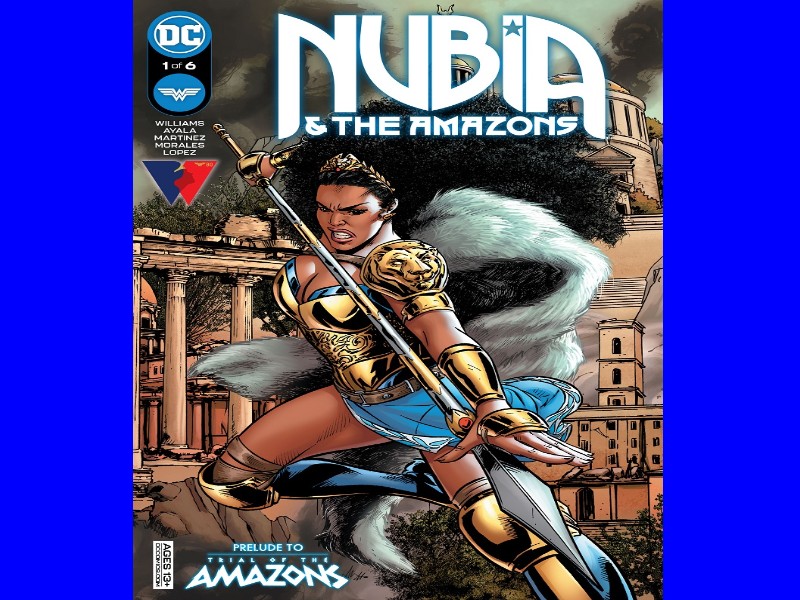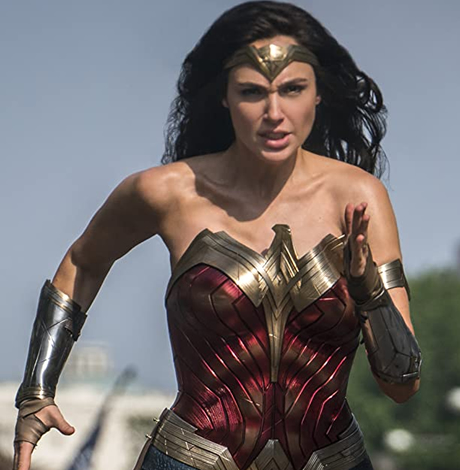Miscellaneous
Queer fans’ love of Wonder Woman is bulletproof
Anticipated sequel ‘1984’ bows on Christmas Day
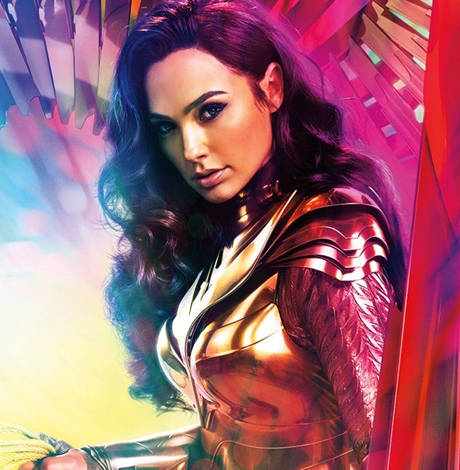
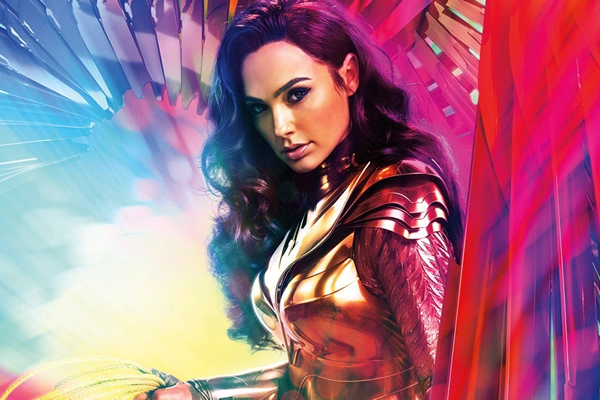
With the release of “Wonder Woman 1984” on Christmas Day, a whole new generation of queer fans will be able to connect to the iconic DC superhero through a campy, nostalgic lens – something countless GenX-ers hold near and dear in their memory, thanks to the ‘70s TV show starring Lynda Carter.
The character herself, of course, predates that series by decades. Debuting in DC’s “All Star Comics #8” in 1941, she was quickly embraced by readers, and soon became a star in her own right. In “official” mythology, she was sculpted from clay by her mother, Queen Hippolyta of the island nation Themyscira, and given life as an Amazon princess before joining the outside world in its battle against the Axis powers of WWII. Those details have been retooled from time to time over the years, adapting it to the needs of an ever-evolving canon and the changing cultural tides of time; but her essence has remained the same – a strong, confident, and independent female character who can not only stand as an equal among men but outthink and outperform most of them without even breaking a sweat.
As such, she has been embraced as a feminist icon – though in the early years, many (mostly male) readers and critics dismissed her as a representation of the “angry, man-hating lesbian,” an interpretation undoubtedly stoked both by her provenance as a member of an all-female society and a heavy dose of fragile masculine ego. As years have gone on, however, that view has been mostly eclipsed by an acceptance of Wonder Woman as a symbol of feminine empowerment and equality.
For women, regardless of sexual orientation, it’s not difficult to understand why; in a pop culture that still features a comparative dearth of such role models, she continues to loom large. What might be less apparent is the reason behind the character’s enduring popularity with gay men – which goes far deeper than the obvious camp associations arising from the ‘70s TV show.
Some of that appeal can surely be traced to her real-life origin story. Created by writer and psychologist William Moulton Marston (under the pen name Charles Moulton), she embodied his views around feminism, influenced by feminist thinkers of his day and his own observations about the impact on women of male-centric assumptions and expectations. More relevant, perhaps, is the inside story of the character’s development, which was influenced by not only his wife, Elizabeth Holloway Marston, but by their shared life partner, Olive Byrne; in an arrangement that would have been seen as beyond shocking during their era, the three of them were a polyamorous triad, and the involvement of the two women on shaping the character surely went far beyond just a visual design, which was based on features of both.
While those undeniably queer roots might link directly to Wonder Woman’s status as an LGBTQ fan favorite, they still don’t explain why gay men find the character so compelling – particularly since that history was largely unknown (for reasons that should be obvious) for much of her near-eight-decade existence.
Queer critics, theorists and scholars, of course, have provided volumes of their thoughts on the subject; but to get to the heart of the matter, there is no better source than the fans themselves.
For example, Jake Charles, a 40-something gay man who proudly sports a Wonder Woman tattoo on his arm and still heads to the bookstore as soon as every new issue of her comic hits the stands. He doesn’t remember, specifically, how he was introduced to Wonder Woman, but he knows it happened when he was about 5 or 6.
“Here was someone who could be a hero,” he tells us, “even though they weren’t butch and manly – and I needed to see that. I couldn’t tell you why, at the time, but I did.”
He elaborates, “She’d give you a charming smile, she’d be nurturing to someone she just saved in a way that Batman wouldn’t be. There was something loving and maternal that was just kind of built into her. Even when they’ve decided she needs to be more of a warrior, when they’ve tried to make her tougher and more manly over the years, that maternal side of her just keeps peeping through.”
That observation is echoed by another out-and-proud superfan, Keith Lamont, who says, “She was kind, loving and nurturing, traits that many of us didn’t receive as kids. She offered me protection and fantasy – her fabulous beauty and costumes, her invisible jet, Paradise Island.”
He goes on to add an important point. “I wanted to BE Wonder Woman, because that meant I could be adored by her love interest, Steve Trevor. She was really the only female superhero at that time, and I think it’s easier for a young gay boy to identify with a woman who is longing for the love of a man – as opposed to liking Superman or Batman, which is a different thing.”
Possibly the most universal shared experience of gay men with the character is expressed by another gay GenX-er, David Diaz, who tells us, “I loved her as a comic book superhero before the TV show, but once she came to life so spectacularly on the screen I was thoroughly entranced. Lynda Carter was stunningly gorgeous, but she played it straight, and she never traded on her looks or sexuality like so many other female action heroes. And she wasn’t an offshoot of some male hero, like Supergirl or Batgirl. She was her own woman.
“And of course, there was her transformation. Every time she spun around to change into Wonder Woman, I would do the same in my family room. I think the idea of her metamorphosis, from someone mundane and looked over to someone powerful and FABULOUS, was incredibly empowering for me. Even though I was years away from any real self-awareness of myself as a queer person, I clearly had some semi-conscious understanding of it, because I dreamed of being able to make that transformation myself.”
Even within this sampling of three voices, one can spot the common cord that binds them all together like Wonder Woman’s Lasso of Truth, as well as the variations of perspective that help to give this Amazon Warrior-turned-All-American-Hero such a profound influence on so many queer lives. What it comes down to, in the end, might be the reason she’s been embraced by members of almost every community that has been traditionally dismissed and sidelined by a dominant patriarchal culture – she inspires us to rise above the programming and carve our own space in the world.
Whether or not the new big screen blockbuster captures the cultural imagination as strongly as the 2017 blockbuster that spawned it remains to be seen – but even if it doesn’t, you can be sure that Wonder Woman will continue to hold a place in the hearts of millions of fans for whom she represents that powerful, primal desire to define ourselves by our own truth, and not the narratives foisted upon us by those who would keep us in the background.
Miscellaneous
Stephen Miller’s legal group sues Fairfax County schools
Lawsuit challenges policies for transgender, nonbinary students
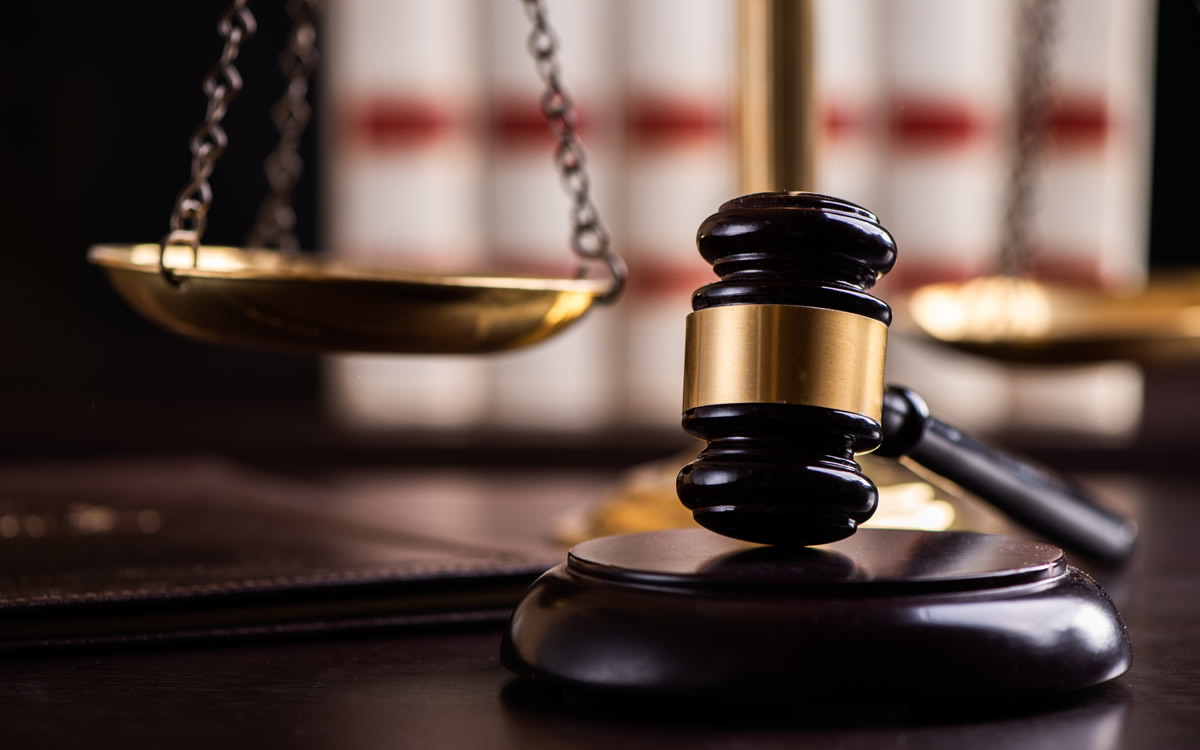
Former Trump administration official Stephen Miller’s legal group on Tuesday filed a lawsuit against the Fairfax County School District over its policies for transgender and nonbinary students.
America First Legal in a press release notes it filed the lawsuit against the school district on behalf of a female, “practicing Roman Catholic” student “for allowing teenage boys to use the female restrooms and for forcing a radical, government-sponsored gender indoctrination and approved-speech scheme that discriminates against students on the basis of sex and religion and violates their free speech rights under the Virginia Constitution.”
The lawsuit was filed in Fairfax County Circuit Court.
The Virginia Department of Education last July announced new guidelines for trans and nonbinary students for which Republican Gov. Glenn Youngkin asked. Equality Virginia and other advocacy groups claim they, among other things, would forcibly out trans and nonbinary students.
Fairfax County schools are among the school districts that have refused to implement the guidelines.
“Fairfax County Public Schools appears to believe that its policies and regulations can override the Virginia Constitution’s protections for religious beliefs, speech and from government discrimination on the basis of sex and religious beliefs,” said America First legal Senior Advisor Ian Prior in a press release. “It is well past time for FCPS to stop sacrificing the constitutional rights of its students so that it can implement a state-sanctioned ideology that demands compliance in speech, beliefs and conduct.”
FCPS Pride, a group that represents the Fairfax County School District’s LGBTQ employees, described the lawsuit as “abhorrent.”
“We are confident that the school board and the superintendent will strongly and firmly oppose this specious suit and continue to support all students, including transgender and gender expansive students,” said the group in a press list.
Miscellaneous
More than a dozen LGBTQ candidates on the ballot in Va.
Control of the state Senate hangs in the balance
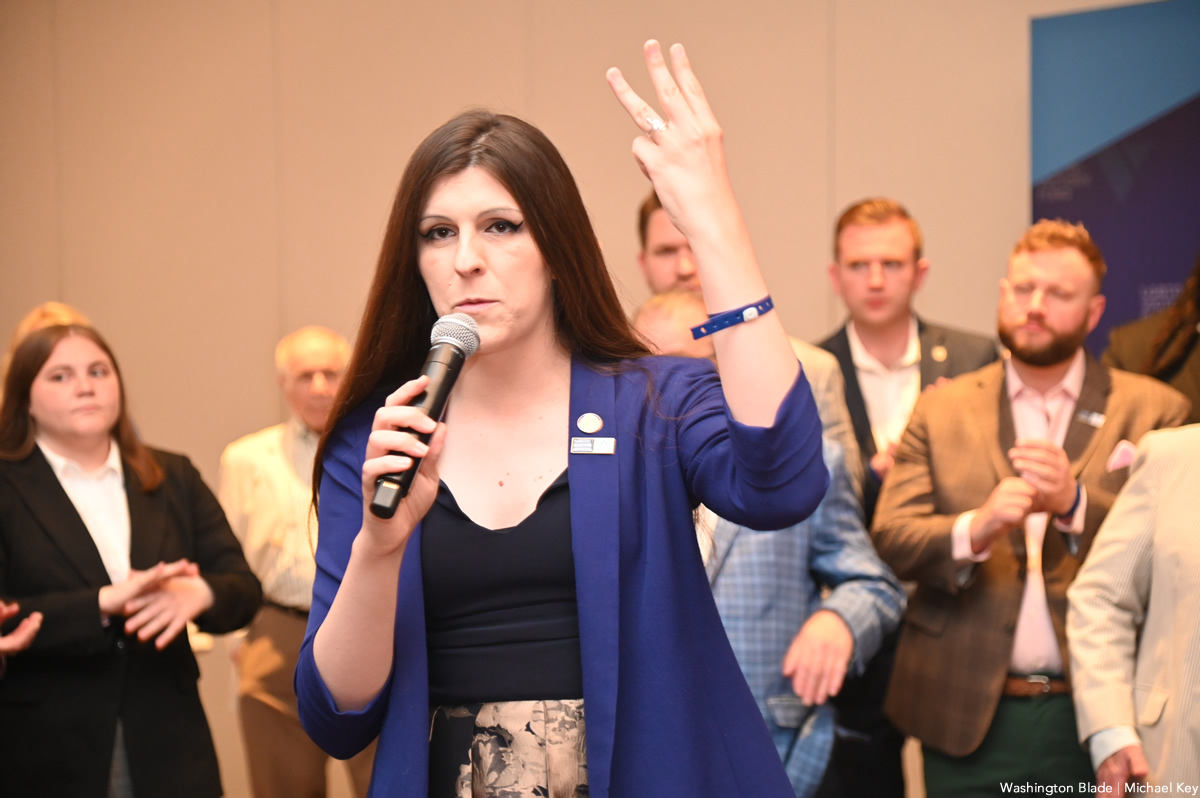
More than a dozen openly LGBTQ candidates are on the ballot in Virginia on Nov. 7.
State Del. Danica Roem (D-Manassas) is running against Republican Bill Woolf in the newly redistricted Senate District 30 that includes western Prince William County and the cities of Manassas and Manassas Park.
Roem in 2018 became the first openly transgender person seated in a state legislature in the U.S. after she defeated then-state Del. Bob Marshall, a prominent LGBTQ rights opponent who co-wrote Virginia’s constitutional amendment defining marriage as between a man and a woman. Roem would become Virginia’s first out trans state senator if she defeats Woolf.
Woolf supports a bill that would require school personnel to out trans students to their parents. The Republican Party of Virginia has highlighted this position in ads in support of Woolf.
“Thank you for reminding me why I won three elections in this district in Prince William County, which is the most diverse county in all of Virginia and the 10th most nationally where we welcome everyone because of who they are, not despite it, no matter what you look like, where you come from, how you worship, if you do, or who you love because you should be able to thrive here because of who you are, never despite it,” said Roem on Sept. 28 in response to a woman who heckled her during a debate with Woolf that took place at Metz Middle School in Manassas.
Gay state Sen. Adam Ebbin (D-Alexandria) is running for re-election in Senate District 39. State Del. Mark Sickles (D-Fairfax County), who is also gay, is running for re-election in House District 43.
Former state Del. Joshua Cole, who identifies as bisexual, is running against Republican Lee Peters in House District 65. State Del. Kelly Convirs-Fowler (D-Virginia Beach), who came out as bisexual last year at Hampton Roads Pride, will face Republican Mike Karslake and independent Nicholas Olenik.
State Del. Marcia “Cia” Price (D-Newport News), a Black woman who identifies as pansexual, is running for re-election in House District 85.
Adele McClure, a queer Democrat, is running to represent House District 2 that includes portions of Arlington County. Laura Jane Cohen, a bisexual woman who is a member of the Fairfax County School Board, is a House of Delegates candidate in House District 15.
Rozia Henson, a gay federal contractor who works for the Department of Homeland Security, is running in House District 19. Zach Coltrain, a gay Gen Zer, is running against state Del. Barry Knight (R-Virginia Beach) in House District 98.
LPAC has endorsed Jade Harris, a Rockbridge County Democrat who is running to represent Senate District 3. Harris’ website notes trans rights are part of their platform.
“Protecting trans rights, repealing right to work, strengthening unions and supporting our farmers are just a few of my legislative priorities,” reads the website. “I am dedicated to addressing the revitalization of our state’s infrastructure, fostering a favorable environment for job creation, and supporting our public education system.”
Republicans currently control the House by a 51-46 margin, while Democrats have a 21-19 majority in the state Senate.
Senate Democrats have successfully blocked anti-LGBTQ bills that Republicans have introduced since Republican Gov. Glenn Youngkin took office in January 2022.
The Virginia Department of Education in July released new guidelines for trans and nonbinary students that activists and their supporters have sharply criticized. They fear that Republicans will curtail LGBTQ rights in the state if they regain control of both houses of the General Assembly on Nov. 7.
“Time and time again, anti-equality lawmakers and the Youngkin administration have made it clear that they will continue to disrespect and disregard the lives and lived experience of LGBTQ+ people within Virginia,” said Equality Virginia PAC Executive Director Narissa Rahaman in August when her organization and the Human Rights Campaign endorsed Roem, Ebbin and other “pro-equality champions.”
“We must elect pro-equality champions who will secure and strengthen our freedoms,” added Rahaman. “We have that chance as the eyes of the nation are on us this November.”
The LGBTQ+ Victory Fund has endorsed Fairfax County School Board Vice Chair Karl Frisch and Fairfax County School Board candidates Robyn Lady and Kyle McDaniel, who identify as lesbian and bisexual respectively.
Michael Pruitt would become the first openly bisexual man elected to the Albemarle County Board of Supervisors if he were to win on Nov. 7. Blacksburg Town Councilman Michael Sutphin and Big Stone Gay Town Councilman Tyler Hughes, who are both gay, are running for re-election.
“Tyler will be a critical voice for equality as the only out LGBTQ+ person on the Big Stone Gap Town Council,” says the Victory Fund on its website.
Cal Benn contributed to this article.
Miscellaneous
What it means to be an active ally to your LGBTQ+ co-workers TEST
Five easy tips to help you avoid common risks
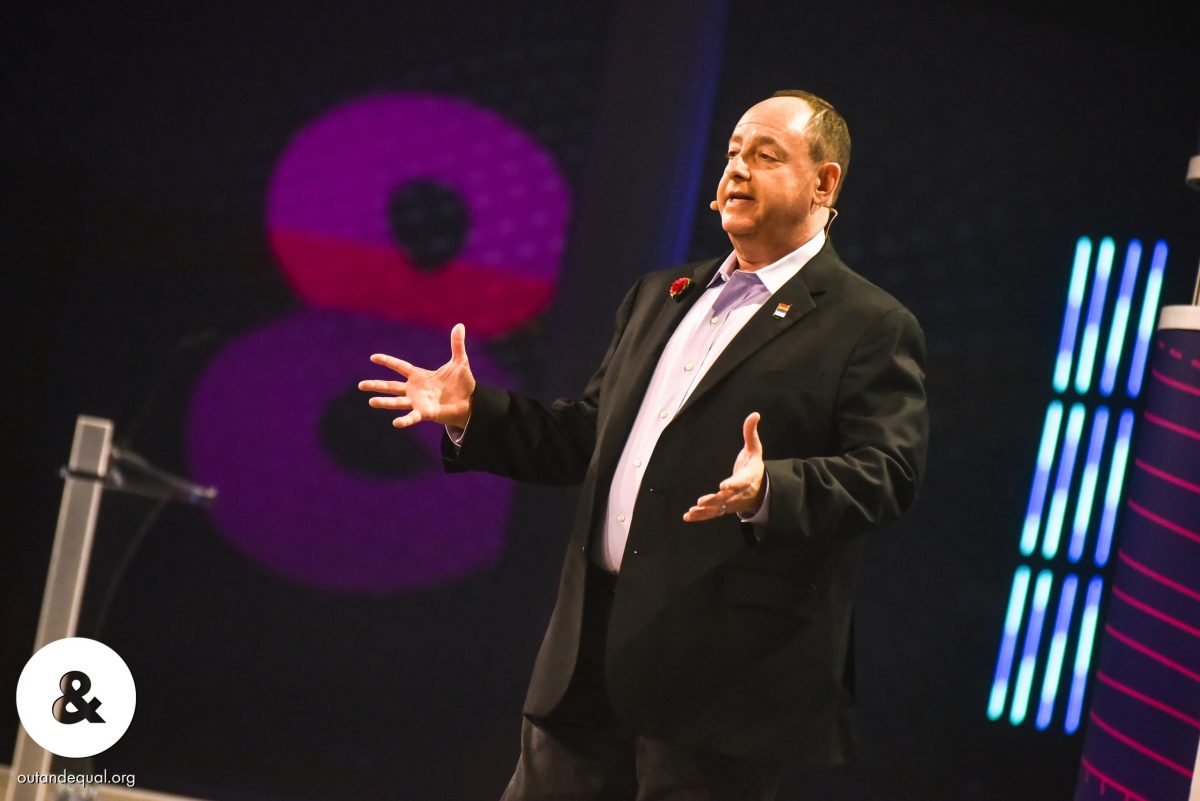
Your home is more than just a place to eat and sleep; it’s your safe haven. As much as you might cherish your home, you should probably also recognize the potential hazards within its familiar walls. Accidents can happen in an instant, yet with a little foresight and some simple adjustments, you can transform your house into a safer haven.
Accidents can happen anywhere, and with a few simple tweaks, you can lower risks in your space. Below you’ll find five tips for each room in your home to help prevent injuries, falls, and other mishaps. In short, home safety.
This article was inspired by a shower in a rental we managed that began leaking through the kitchen ceiling below. If only the landlord had installed grab bars, right!? Below, we’ll guide you through the steps to fortify your bathroom, making it a place of relaxation without the fear of slips and falls. Then, we’ll venture into the room where the magic happens, where proper planning can ensure great nights and peaceful mornings. We’ll show you how to prevent accidents while you experiment becoming the next Gordon Ramsey. And we’ll include a few surprising solutions for those other rooms that hold their own unique hazards, offering solutions to safeguard against unexpected mishaps.
Bathroom Safety
Install Grab Bars: Adding grab bars near the shower and toilet can provide essential support for family members of all ages. Not only can they help with getting in and out, but they can help provide stability when washing. Make sure they are securely anchored to the wall.
Non-Slip Mats: Place non-slip mats inside the shower and bathtub to prevent slips. They’re a small investment that can save you from falls and head injuries.
Adjust Water Temperature: Ensure your hot water is set to a safe temperature to avoid scalding. The hot water heater should be set to around 120°F (49°C)l, the middle setting on many water heater settings.
Medicine Cabinet Locks: If you have young children, use childproof locks on your medicine cabinet to keep harmful substances out of reach.
Proper Lighting: Ensure there’s adequate lighting in the bathroom to avoid trips and falls during nighttime visits. Nightlights can be a simple and effective solution.
Bedroom Safety
Clear Pathways: Keep pathways in the bedroom clutter free to prevent tripping. Ensure there’s enough space to move around comfortably, particularly getting around the bed. Be aware where all furniture is when walking around to avoid stubbed toes, particularly at night.
Secure Rugs: If you have throw rugs, use rug grippers or double-sided tape to keep them from slipping. Loose rugs are a common trip hazard.
Bed Rails: For anyone at risk of falling out of bed, consider installing bed rails to provide extra support and prevent falls.
Nightstands with Drawers: Opt for nightstands with drawers to keep essential items. This reduces the need to get out of bed at night, minimizing the risk of falls, as you race to grab what you need and not lose a moment’s rest.
Fire Safety: Install battery-operated smoke detectors in the bedrooms if there are none. Make sure to install them 36 inches away from an air vent or the edge of a ceiling fan. Also six inches away from the joint between the wall and ceiling. And test smoke detectors regularly.
Kitchen Safety
Non-Slip Flooring: Choose slip-resistant rugs in the kitchen, especially in areas where spills are common. Mats near the sink and stove can also help and you can often buy them fairly cheaply at Costco.
Childproof Cabinets: If you have little ones, use childproof latches on cabinets and drawers to prevent them from accessing potentially hazardous items.
Anti-tip brackets: Install an anti-tip bracket behind the range. These are often used when children are in the home. Although they are less likely to open the oven door and use it as a step stool to get to the stove-top, adults can also benefit from installing these.
Adequate Lighting: Proper lighting is crucial in the kitchen to avoid accidents. Under-cabinet lighting can illuminate work areas effectively.
Secure Heavy Items: Ensure heavy pots and pans are stored at waist level to prevent straining or dropping them from high shelves.
Sharp Object Storage: Keep knives and other sharp objects in a secure drawer or block. And handle all sharp items with extreme care, even when washing and drying. These steps reduce the risk of accidental cuts.
Other Safety Tips
Furniture Anchors: Secure heavy furniture, like bookshelves and dressers, to the wall to prevent tip-overs, especially if you have young children.
Adequate Outlets: Check for damaged outlets and replace them promptly. Avoid overloading circuits with too many devices. Install placeholder plugs in outlets to prevent young curious fingers (or tongues?) from going inside an electrical outlet.
Stair Gates: If your home has stairs, install safety gates at the top and bottom to prevent falls, especially if you have toddlers or pets to keep them off of the stairs when you cannot monitor them.
Emergency Escape Plan: Develop and practice an emergency escape plan with your family, including a designated meeting place outside.
Carbon Monoxide Detector: If your home burns any fossil fuels for heating or appliances, install carbon monoxide detectors in common areas of your home to detect this odorless gas. The D.C. building codes require this if you use a fireplace or if you have an attached garage. In essence, if there is any potential source of carbon monoxide in the home, be sure to install these detectors.
Remember, a safer home not only prevents accidents but also provides peace of mind for you and your family. Implement these simple tips to create a secure environment in every room of your house.
With these practical tips and a few adjustments, you can significantly reduce the risk of injuries and falls in your home. Enjoy peace of mind in your now much safer haven.
Scott Bloom is owner and senior property manager of Columbia Property Management.
-

 Sports5 days ago
Sports5 days agoTrans cyclist’s victory sparks outrage in conservative media
-

 Congress5 days ago
Congress5 days agoCongress passes ‘Big, Beautiful Bill’ with massive cuts to health insurance coverage
-

 Israel5 days ago
Israel5 days agoActivist recalls experience in Tel Aviv after Israel-Iran war began
-
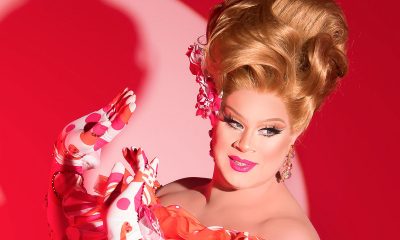
 Celebrity News5 days ago
Celebrity News5 days agoNina West’s ‘Sugar in the Tank’ tour comes to Rehoboth Beach

